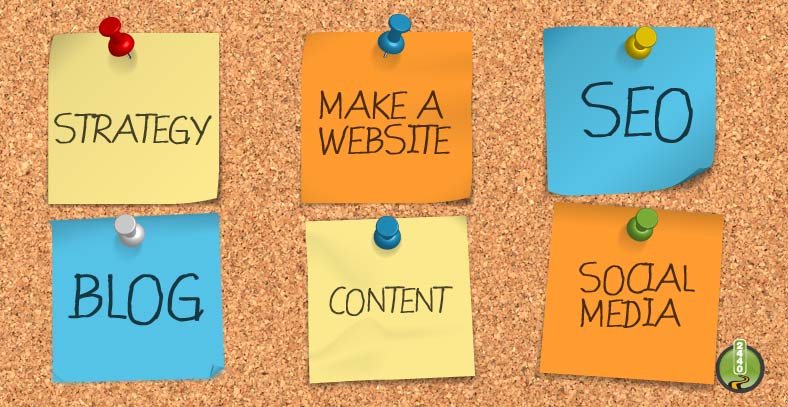What To Expect When Building A Website
We usually don't notice it when we're browsing the web, but building a website takes a lot of hard work and requires some meticulous planning. If you're trying to get your first piece of online real estate off the ground, here's what you're in for.
Before we begin, note that you can hire professionals to help you with every step along the way. If you're setting up a corporate website, we highly recommend that you seek some professional counsel from a designer, developer and/or SEO-specialist.
Insufficient planning or lack of foresight in the early phases will most likely lead to a lot of lost time and even more headaches further down the road when you have to reverse the bad decisions you've made. A professional can help you avoid making some common mistakes and save you money in the long run.
Without further ado, here's a short description of what you can look forward to on your road to website ownership:
1. Planning It All Out.
This first step is the least exciting, but arguably the most important one to guarantee yourself future success. Reading this is a good first step, but it cannot stop there. You're going to have to figure out what it is exactly that you want your website to achieve and how you're going to achieve that. This should go beyond vague guidelines and should be as specific a strategic plan as you can muster.
2. Building The Site.
If you've got experience building websites, then great. Otherwise, you're going to have to decide on a web design and development firm. It speaks for itself that entire volumes could be written on this issue of building a website, but the essence of the matter is this: a website is not about pretty bells and whistles, but about achieving your objectives. Use the knowledge you've gained in the planning phase and make sure your website revolves around the visitor and achieves those strategic goals.
3. Hosting, Administration and Maintenance.
Once you've got a website, you have to get it online. Once it's online, you'll have to make sure that it stays online without breaking. These more technical tasks should be performed by a trusted partner or firm (possibly your developer).
4. Marketing and SEO.
A website is useless if it doesn't have any visitors. To get people to visit your site, you'll need a marketing strategy. This involves, among other things, choosing a good domain name, collecting backlinks to boost your search engine rankings, optimizing your website with SEO-principles in mind and promoting your website through free and/or paid advertising campaigns and social media.
5. Adding Content.
Often neglected by new website owners, content is the indisputable king of the internet. Either you, your employees or hired professionals should be adding new content to your website regularly to make sure your visitors keep coming back for more, as well as to provide what's necessary for a successful SEO-strategy.
This, in a nutshell, is what you can expect when building a website. As you can see, a website is more than an web address with some text and pictures on it. But as long as you plan your strategy out well and stick to it, your website will achieve the objectives you set for it. Just remember that you don't have to do it all by yourself.


